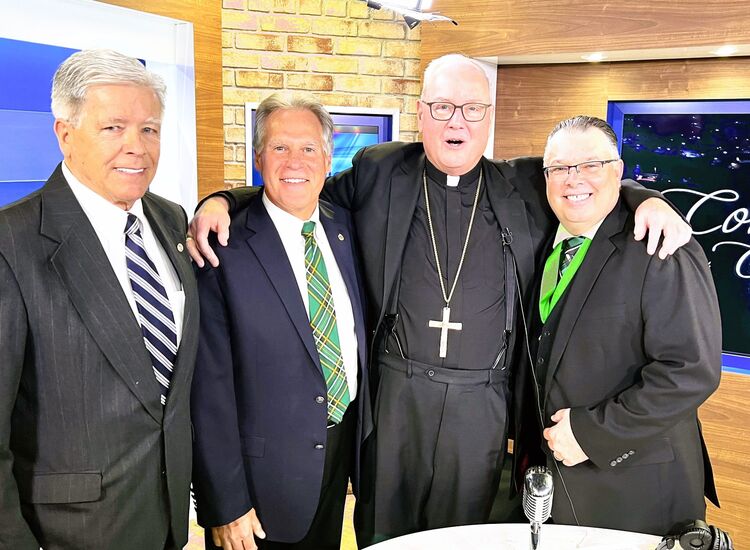Every so often, I encounter a newspaper review so stupefyingly stupid that I wonder if the writer and his or her editor forgot their meds at the same time.
In "Back to the '90s, Tootling a Flute," a July 19 New York Times review of the Pitchfork Music Festival in Chicago, appeared these comments by the writer, Jon Caramanica, about the flute: "an instrument so prim, so saccharine, so shrill" and "Didn't New Age kill off the flute? Or Jethro Tull?"
If those bumptious, blockheaded remarks weren't enough, Caramanica takes an offhand swipe at the saxophone: "Maybe flute will become the new saxophone, which just two years ago was an outcast instrument but is now used in Lady Gaga songs and was deployed by at least four bands here."
Apparently keen on proving his ignorance of the flux in instrumental cycles and trends, Caramanica bizarrely adds: "Sax has become the new cowbell."
But let's stick to the flute. I wonder if Caramanica, straining to document an "emergent flute infestation" in indie rock, is aware that the instrument is 45,000 years old. Or that Bach, Handel, Mozart, Vivaldi, Debussy, Ravel, Beethoven, Schubert, Cage, Berio, Ibert, and Boulez all composed for the flute. Or that the list of prominent flutists, living or dead, includes James Galway and Jean-Pierre Rampal in classical; Frank Wess, Bud Shank, Eric Dolphy, Herbie Mann, James Moody, Charles Lloyd, and Lew Tabackin in jazz; and -- apart from Ian Anderson of Jethro Tull -- Alan Wilson of Canned Heat, Chris Wood of Traffic, Ray Thomas of the Moody Blues, Jerry Eubanks of the Marshall Tucker Band, and Mike Vickers of Manfred Mann in rock. Even the Beastie Boys, Dr. Dre, Led Zeppelin, Genesis, Guns n' Roses, and the Beach Boys featured flute on occasion. Can anyone detect flute-killing New Age in that music?
I didn't cite any Irish traditional flutists because I knew it would be too easy. But if I did, my long list of luminaries would include Cork's Conal O Grada, who performed with East Galway-born, Clare-resident fiddler Maeve Donnelly at a house concert sponsored by the Shamrock Traditional Irish Music Society on July 18 in Fairfield, Conn. I wish Caramanica would have been there to document what readers of "Ceol" already know: flute has been firmly entrenched in Irish traditional music for centuries.
Earlier this year O Grada recorded a splendid album, "Millhouse Measures," with his Raw Bar Collective colleagues Benny McCarthy on button accordion and Dave Sheridan on fiddle. O Grada also has two exceptional solo CD's to his credit: "The Top of the Coom" and "Cnoc Bui."
Maeve Donnelly was a founding member of one of Ireland's finest instrumental bands ever, Moving Cloud, with whom she made a cassette and two CDs. She also has two standout solo albums, "Maeve Donnelly" and "Flame on the Banks" (the latter accompanied by guitarist Tony McManus), and a superb duet release, "The Thing Itself," with flutist Peadar O'Loughlin. (Note: I wrote essays for her self-titled solo debut in 2002 and for Moving Cloud's "Foxglove" in 1998.)
Before an enthusiastic, living-room audience, O Grada and Donnelly played impeccably, navigating with ease the musical styles of Galway, Clare, and Cork (particularly Sliabh Luachra). Great musicians invariably find the common seam that induces seamlessness, and these two are indisputably great musicians.
In the reels "Leitrim Bucks / Eel in the Sink," Donnelly's virtuosic saw-stroke improvising complemented the drive and tonal command of O Grada's flute playing. In the reels "Lady Montgomery's / The Red-Haired Lass" and in the jigs "Gander at the Pratie Hole / Sweet Briar" that followed, the duo elevated their playing onto a fresh plane of tightness. Every medley they did together, including a couple of flings dubbed "Cuz Teahan's," reflected the deep respect and joy commingling in their musical partnership. This unlikely pairing in styles turned out to be thoroughly inspired in performance.
Donnelly's fiddle solos were a jaw-dropping blend of limberness, precision, and adventure, yoked to a bowing mastery of rare power and confidence. At one point, after a monumental exhibition of short-note runs that had the paradoxical effect of expanding as they grew more compact, the owner of the house walked up to Donnelly and fanned his handkerchief over her fiddle as if to cool it off. Was that rosin or smoke issuing from her strings? Either way, her soloing was on fire during such medleys as "The Newcastle / The Independent" hornpipes, "The Flax in Bloom / Beauty Spot / Counting the Coppers" reels, and "The Braes of Busby / Mountain Road / Kilty Town" reels.
O Grada's solos had no less an impact. His flute playing combines brilliance without ostentation, force without being forced, and nimbleness without self-consciousness. His technique seems limitless, allowing him to execute changes, ornaments, and details in a rock-steady tempo and with a captivating meticulousness. The reels "Tivoli Capers / Daorla" and the hornpipe "All Wine and No Milk," all of which he composed, as well as three slides that included "Scattery Island" were radiant solo showcases of his talent.
It was a stellar concert, and the audience understandably insisted on an encore. Maeve Donnelly and Conal O Grada came back for a final medley of reels, "The Graf Spey / Come West Along the Road," played with a skill and ardor typifying the whole evening.
On the Monday night right after the Catskills Irish Arts Week in East Durham, N.Y., where they had a full schedule of teaching and performing, these two exceptional instrumentalists shrugged off any residual fatigue and tapped into a new reserve of energy and excitement for their playing. No matter how they did it, one house in Fairfield, Conn., brightened with the result.
NHF update
The prospect of the National Heritage Fellowships and the Jazz Masters Fellowships coming to an end after 2011 evidently sparked quite a few testy letters and e-mails to the National Endowment for the Arts. Joining this chorus of distress and dissent were my Irish Echo column and Nat Hentoff's JazzTimes column, and concerned individuals such as Jesse and Terence Winch of the bands Celtic Thunder and the Narrowbacks did yeoman work behind the scenes to sway the decision in favor of retaining the NHF.
So it now appears that the National Heritage Fellowships will continue, giving renewed life to the candidacies of Seamus Connolly, Billy McComiskey, James Kelly, Felix Dolan, Brian Conway, Joanie Madden, and Msgr. Charlie Coen, among a number of worthy others. Martin Hayes, who would have been a strong nominee for the NHF, has moved back to County Clare.









